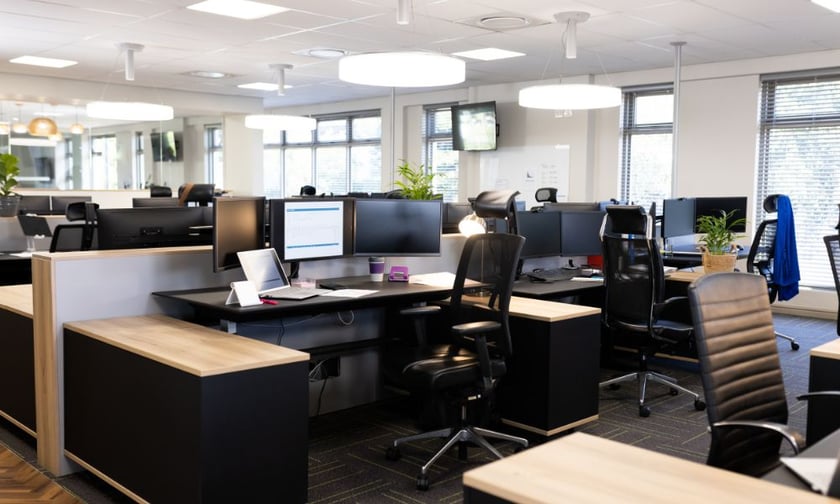

By
With so many companies requiring workers to return to the office, both in Australia and across the globe, some are left wondering about the fate of office spaces.
In 2025, Amazon, Tesla, Tabcorp and Citigroup are just a few of the firms mandating employees make an appearance in person five days a week. Meanwhile, the likes of Meta, Woolworths, Coles and even Zoom, are requiring at least particle return to office. One could assume then that the commercial office market is poised for a near-term comeback — which means added opportunities for brokers.
The numbers say it all: Office occupancy in Melbourne and Sydney fell from more than 90% in 2019, to just above 20% in Melbourne and about 60% in Sydney by mid 2021, according data from the Reserve Bank of Australia. But according to a 2025 report by JLL, global office leasing for all of 2024 was at its highest annual total since 2019. The same report found that office leasing recovery is growing faster in the Asia Pacific, than in Europe or North America, up 23% between 2020 and 2024, compared with the global average of down -12%. And in Sydney, office rental prices have increased 12.6% between 2021 and 2024, making it both an opportunity for landlords and brokers as competition among businesses heats up.
But market participants say it's not that straightforward.
"In Australia, the hybrid model is here to stay," Grant Smith, deputy chief lending officer at Orde Financial, told Australian Broker. "We're rebalancing into a new normal at the moment.
"Data coming through [for] commercial real estate and office buildings — while it did have that [declining] impact through the COVID period — it has actually returned to more normal levels,” Smith said. “Commercial real estate is starting to find that balance again in the market."
As companies reshuffle and work to figure out what their future workplace needs and size requirements will be, some are downsizing and moving into co-working spaces, while others are competing for class-A building leases, pushing up rent prices in prime locations.
Drew Bowie, managing director, asset management at MA Financial, said demand for office space in Australia depends on the state.
"If we think about Sydney, there's been some notable return to the office and increasing demand for accommodation needs," Bowie said. "The New South Wales government is taking initiatives to increase their own corporations to return to the office. So that drives demand. [But] I think we're a long way off from there being a case for a lot of new developments. There's still supply to be absorbed before we're going to see new construction starts. In other states, such as Victoria, [demand for office space] is a lot slower, because the return to office is a lot slower.
"As interest rates come down, the case for reinvesting in office markets will increase; we'll start to see an increase back in the office sector," he said.
Steve Sampson, chief executive officer of non-bank lender Prime Capital, agreed that Australia's office market is "a bit two-speed."
"The commercial property market is going through a cycle. In the capital cities, it really depends on the grade of the building. The good-grade buildings have plenty of tenancy, but those properties that have deteriorated, in the B or lower class, landlords probably find it more difficult to rent and are having to offer 20% to 40% rental abatements as well as a fresh new fit out," he said.
"It's good to have the commercial knowledge," Hall said. "But for brokers, I think the industry is trying to encourage brokers not to just specialize in residential; to try their hand at commercial. But I actually think [the commercial market] is quite complex and can lead to quite disastrous [outcomes] if a broker doesn't know what they're doing and then tries to lend their hand into commercial. And it could cause a lot of problems and potentially loss of money for the borrower."
But Matthew Porch, head of distribution at commercial lender Aquamore Finance, had a different take.
"A broker, in my opinion, should be a one-stop shop for a client who's looking for any form of finance," Porch said. "If a broker does have a number of skill sets that they can offer to the market, then a slowdown in one particular sector shouldn't impact them too much from a revenue perspective. My advice would be just to continue with diversification and continue with helping out your client in every facet that they can."
